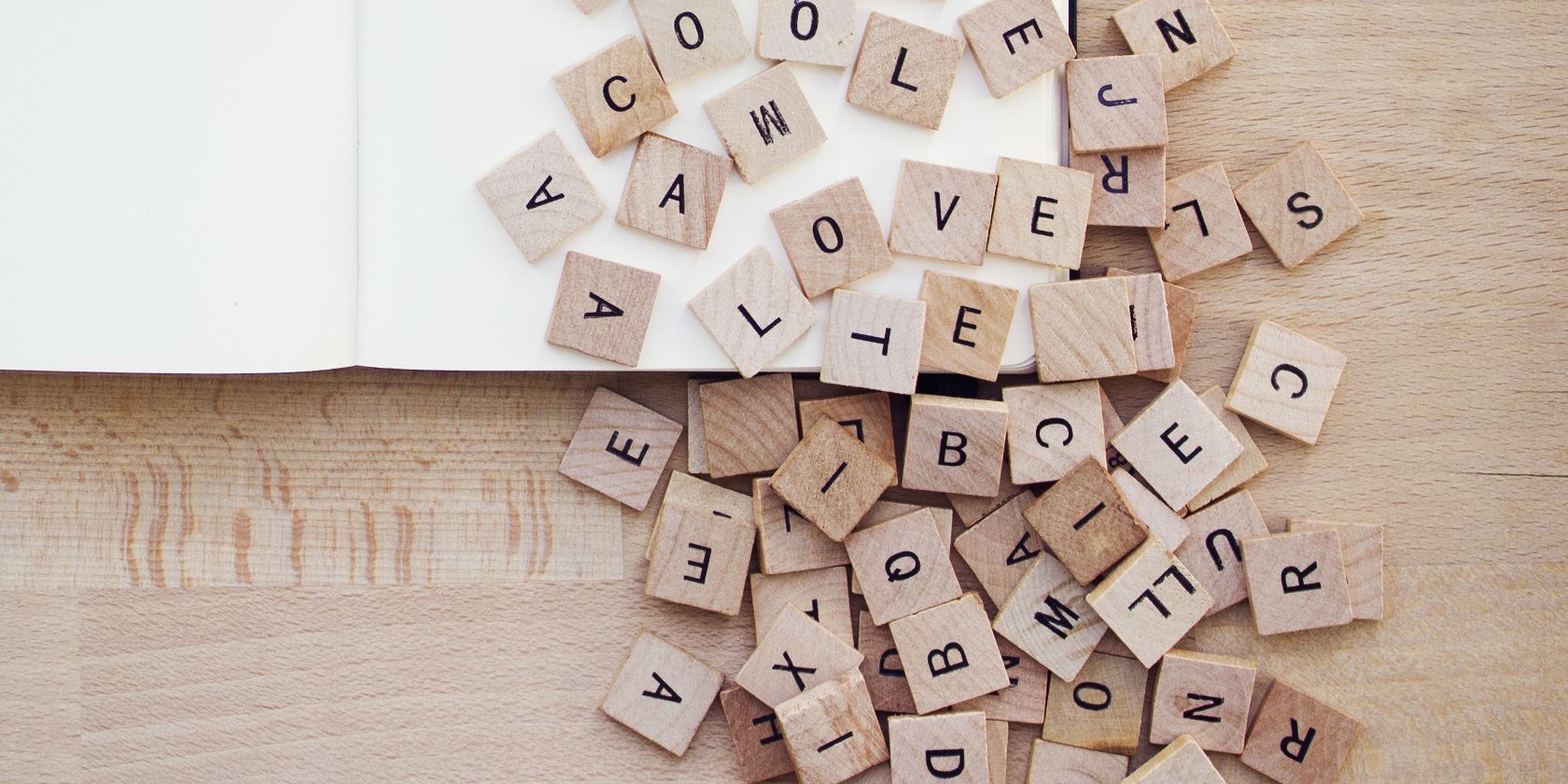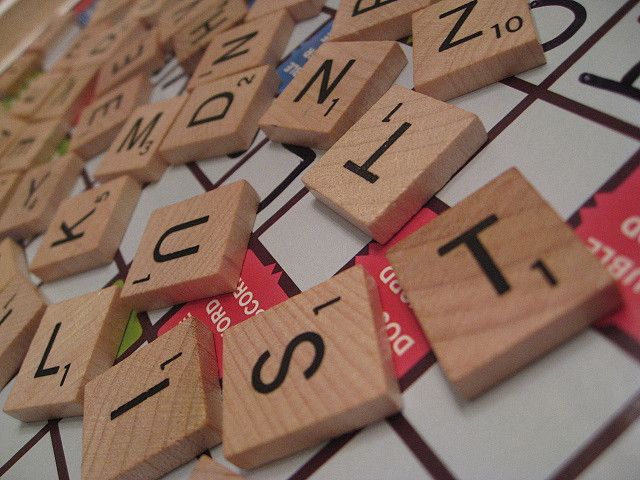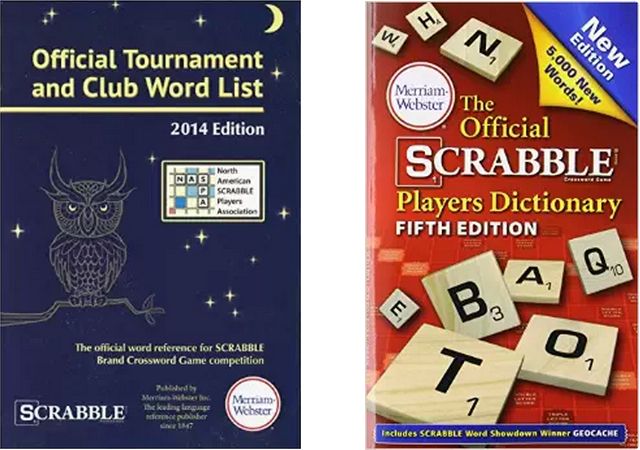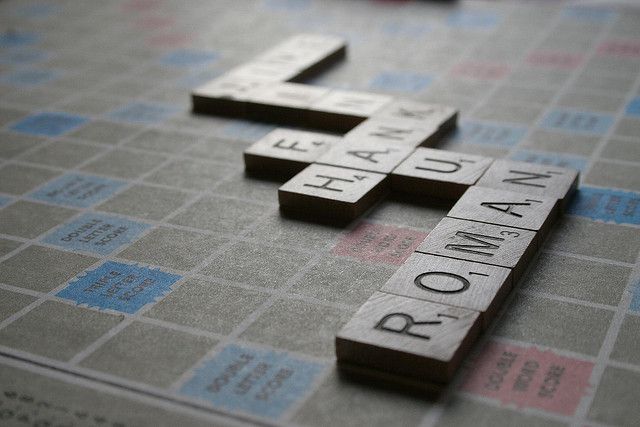Winning a game of Scrabble might not be easy, but in theory it's relatively simple: put down more words than your opponent, and you'll likely claim victory. For this reason, expanding your vocabulary is one of the best ways to improve at the game. There are thousands upon thousands of acceptable words, and generally speaking the more you know, the better you'll do.
The recent addition of 6,500 words to the official Scrabble word list will help, too. Whether or not you think "text speak" words like NEWB and GRR should be allowed in the grandfather of all word games, you can take advantage of these new words to win.
A History of Controversy
If you've been playing Scrabble for a while, you might think of proper nouns, sounds, and slang terms as being disallowed. So if someone plays MYSPACE, ZZZ, INNIT, or BLOOK, you might feel justified in challenging it. But these are all acceptable under the current rules. The traditional "no proper nouns or slang" guidelines just don't apply any more.
Scrabble isn't generally known as a controversial game, but there have been a number of changes to the official dictionary that have had some players up in arms. A few years ago, FACEBOOK, WEBZINE, and THANG were added to the dictionary. Shortly afterwards, Drew Grant at Salon wrote that "the game is basically anarchy now" (certainly a gross overstatement).
In the early 1990s, a woman named Judith Grad saw that an offensive definition of the word JEW was in the Scrabble dictionary and went on a letter-writing spree that included Milton Bradley, Merriam-Webster, the Anti-Defamation League, B'nai B'rith, the National Association for the Advancement of Colored People (NAACP), and the National Council of Jewish Women.
Grad hoped to get JEW and a number of other offensive words de-listed from the second edition of the Official Scrabble Players Dictionary, and after sending a number of letters to various agencies, she was successful.
Players were outraged that Hasbro — the parent company of Milton Bradley — had changed the dictionary over a moral point. They were so angry that Hasbro eventually released a second dictionary, the Official Tournament and Club Word List, which contains all of the words that are acceptable in tournament play but not appropriate for school or recreational use.
There's also Collins Official Scrabble Words, the current document under discussion. With the rapid change of the English language and three different books of acceptable words (including one that basically consists of profanity), it's easy to see why there's controversy in the Scrabble world.
Many people already think that slang (and the proliferation of emoji) is ruining the English language, and this point of view only exacerbates the trouble. In fact, the inclusion of new words in the Scrabble dictionary is often used as ammunition for the, "English is going down the drain" argument.
Why the Change?
So why would Collins decide to include these new words in the latest dictionary? It comes down —as most language-related disputes do — to your view of linguistics. There are two sides. First, the descriptivist camp, which believes that linguists and dictionary-makers should only describe how language is used, and not make judgments about whether that use is "right" or "wrong."
The second group, prescriptivists, try to enforce language rules that determine how people use language. These are the people who disagree with Collins’ decision. They’re also the people who frown upon the use of text-inspired words in face-to-face conversation, will tell you that “ain’t” is incorrect, and correct you when you say “who” instead of "whom."
There’s no arguing that people use these new words; “wuz,” “bezzy,” “dench,” and “checkbox” are all part of our modern language. Whether or not that makes them viable Scrabble options is really up to the makers of the game. Because Collins publishes the official word list, it gets to decide what's allowable in Scrabble. And the company is firmly in the descriptivist camp.
Not all of the 6,500 new words in Collins are text speak, though. A number of words that have been around for a long time and have lost a hyphen or become more widely accepted were included in this update. There are a number of entries that started as non-English words and have been adopted in English-speaking countries as standard, like the French “cinq” (“five”).
And some controversial entries also began their lives as brand names, like “facetime,” the verb form of Apple’s real-time messaging app.
Take Advantage to Win
Regardless of how you feel about the inclusion of these new words in Scrabble, if you want to win, you’ll have to take advantage of them, even if you don't know what they mean. To help you out, here’s a list of 20 of the highest-scoring words in the new edition:
- BEZZY (best friend): 18 points
- CAKEAGES (restaurant charges): 15 points
- CAKEHOLE: 17 points
- CAZH (casual): 18 points
- CHECKBOX: 28 points
- CINQ: 15 points
- COQUI (a type of frog): 16 points
- FACETIME: 15 points
- GEOCACHE: 16 points
- HACKTIVIST: 22 points
- OXAZOLE (a chemical compound): 23 points
- PACZKI (a type of donut): 23 points
- QUINZHEE (a type of shelter, made of snow): 29 points
- SCHVITZ (to sweat): 24 points
- SEXTING: 15 points
- SHIZZLE: 18 points
- SHOWROOMING: 20 points
- THANX: 15 points
- TWERKING: 16 point
- WUZ: 15 points
One of the most important things you can do if you want to win at Scrabble is to know a lot of short words to take advantage of good spaces on the board or get rid of a few more tiles at the end of the game. Here are some of the new ones:
- AUGH: 8 points
- EEW: 6 points
- GRR: 4 points
- LOLZ: 13 points (though note that “lol” is still not allowed)
- NEWB: 9 points
- OBVS: 9 points
- PWN: 8 points
- VAPE: 9 points
- WAHH: 10 points
Familiarizing yourself with all 6,500 new words might not be possible (unless you’re a world-class Scrabble competitor), but scanning over the words listed above might not be a bad idea before your next match. It’ll give you an advantage — especially over players who might not be as familiar with text speak.
What Do You Think?
This is a rather volatile time in Scrabble’s history, and the latest update to the official word list could make a big difference in how the game is played. What do you think of these changes? Is the English language getting worse? Do you think that dictionaries should prescribe how we speak? Or simply describe language as it’s used by people in the real world?
Share your thoughts below! Using long words, obviously.
Image credits: Group of lettered tiles (edited) via Shutterstock; pa1nt, Orin Zebest via Flickr.




